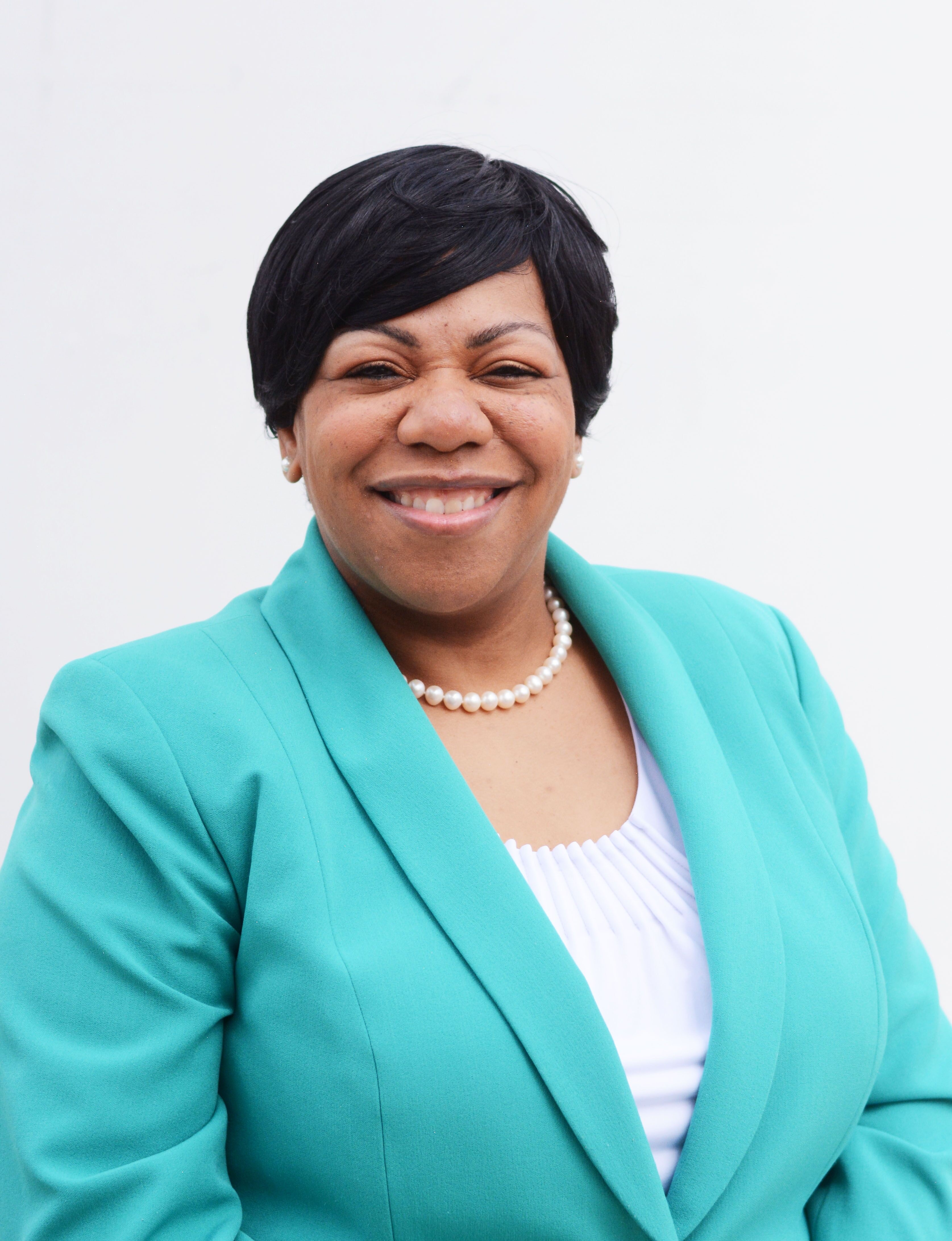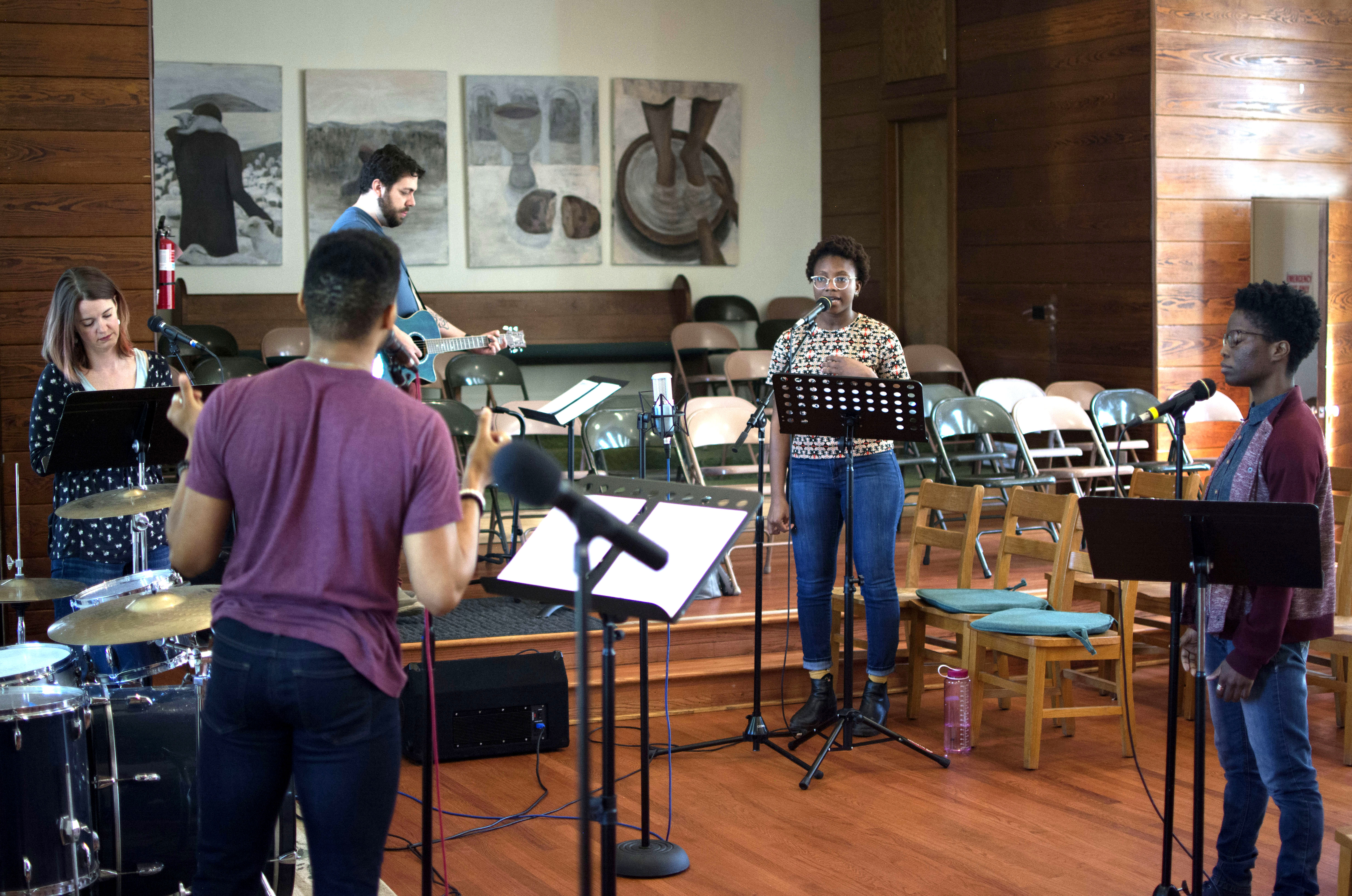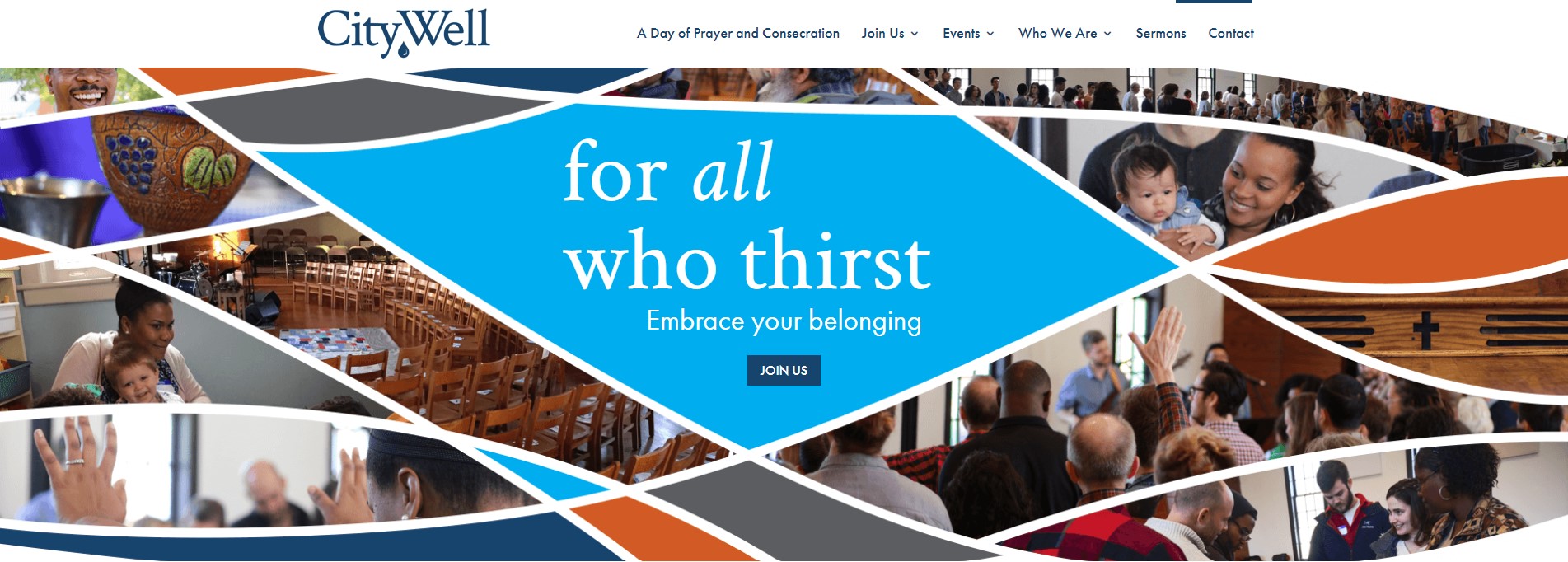CityWell, a racially and culturally diverse United Methodist congregation in Durham, North Carolina, effectively engages in multi-ethnic communication within the church family and the community. Located near Duke University, the church engages with social issues relevant to the community and the congregation.
 The Rev. Crystal DesVignes. Photo courtesy of Rev. DesVignes.
The Rev. Crystal DesVignes. Photo courtesy of Rev. DesVignes. “For reasons of oppression and marginalization, Black, Latinx, Asian communities have siloed themselves into churches,” the Rev. Crystal DesVignes, CityWell’s lead pastor, says. “It makes sense to worship God and not be under marginalization. I believe if we will do, all of us, this work at this moment in our country, then we can come together and be the church in powerful ways. It will be messy work, but it’s necessary work. To be multi-cultural in one space is the goal.”
“CityWell can be seen as an anomaly among UMC churches because of the diversity it presents,” she continues. “It was founded (in 2011) by a white male pastor with antiracism being at its core (along with) a desire to be multicultural and diverse even in its expressions of language and worship.” Realizing it would be difficult to be seen as truly multicultural with highly visible white, male leadership, the congregation worked to diversify its leaders. “About 4 years into its existence, … they asked the conference to appoint a person of color to the position of co-pastor or associate pastor. The language of co-pastor has always been used at CityWell. I then became the second black woman co-pastor in 2018, when the first co-pastor went to full-time campus ministry,” said Rev. DesVignes. In 2019, DesVignes became the sole pastor at CityWell. She brought experience in multi-culturalism from her life as an African American and Trinidadian single mother.
Describing a truly diverse church, DesVignes speaks of “this beautiful bowl (where) we see what is going to happen in Revelation where every tribe and nation will sing, ‘Worthy is the lamb!’ It will also look like Pentecost. Everyone (speaking) in their own language and all different ethnicities – like we see in Acts – hearing the Gospel in their tongue. There is no way to say, ‘Oh, we’ll put you on the side’ because to really be the church is in essence to be a diverse people.”
Effective communication is essential to cultivate a culture of diversity. CityWell does this internally as a church family and in reaching out to the community through several communications platforms.
Share the mic (figuratively). “Sometimes, I’ve recognized I’m not the best messenger to be there,” says DesVignes. When deciding who should share a specific message she urges those who “hold the mic” or have the privilege of being a speaker to “look at your own privilege regarding the message. After deciding if you are the best messenger or not, decide if you are the best messenger for [a specific] message.
“If you are not a person of color [and you want to share a message that affects people of color] ask others to help you decide whether you are the best person to share that message… Think about the audience, (about) what are you trying to convey? Is it culturally sensitive? Part of the work of multi-ethnic communications is that you have to invite and empower different ethnicities (to tell their stories).”
In worship, CityWell shares the mic is by having different church members and student interns preach periodically. They ensure that different voices are a part of the service through the liturgy and using both Spanish and English – the predominant languages in the congregation.
 Photo courtesy of CityWell.
Photo courtesy of CityWell. Listen to each other. After every sermon at CityWell, the congregation breaks into groups for 15-minutes of discussion responding to the sermon. The preacher for the day usually poses questions to stimulate discussion. “Those times are crucial,” says DesVignes. The practice has continued as the church has gathered remotely during the COVID-19 pandemic. CityWell uses Zoom’s breakout rooms feature to continue the sermon responses.
The church also periodically sends out surveys to determine what the its next steps will be. Rev. DesVignes says, “This gives the congregation input to the direction the church is taking and helps me know what others are thinking in relation to a specific topic.” In the past months, CityWell asked the church members how the congregation should to respond to racial tensions in the community and throughout the United States; and most recently, feelings on when to resume face-to face worship in the midst of the coronavirus pandemic
Develop a covenant. CityWell has developed a family covenant that unifies the congregation as it affirms a commitment to putting an emphasis on gathering, welcoming and listening.
It states (in part):
“The CityWell Covenant is a response to our Lord’s invitation for us to live in covenantal relationship with Him, with one another and with our neighbors. …
“A Gift We Give: With this covenant we give one another the gift of shared commitment to a way of life we believe to be good, beautiful and honoring to our Lord. This covenant will serve to remind, encourage and call us into the life God makes possible through the Spirit of Jesus. …
An Invitation We Extend: This covenant is an invitation into the intimate life of being known by God and by our church family...”
Use several communication platforms. CityWell communicates with the church and the public through its website, social media and an e-newsletter. Messages are tailored differently for each platform. All portray a welcoming and diverse church through the imagery and language. DesVignes says the communicator managing the platforms “has always been a bilingual person who speaks English and Spanish.”
“Our plan is to communicate any idea as many times and on as many platforms (as possible),” she continues. “If you say something on Sunday, put it in an email (and) put it on social media. Then we (have created) at least three ways of communication.”
CityWell communicates effectively with a multi-ethnic congregation and community through sharing the mic, listening and consciously making an effort to commit to God and to each other. However, the reason it is effective goes beyond strategizing and developing a plan. The church not only claims to be diverse, but it expresses diversity through actions and what follows.
“How do we get there (to being a truly diverse church)?” DesVignes asks, “Now that’s the thing. CityWell is doing that optimally, I think, well. But there is still more work to do.”
Aileen Jimenez is manager of Hispanic/Latino leader communications at United Methodist Communications, Nashville, Tennessee, U.S.A. You can reach her at ajimenez@umcom.org.


